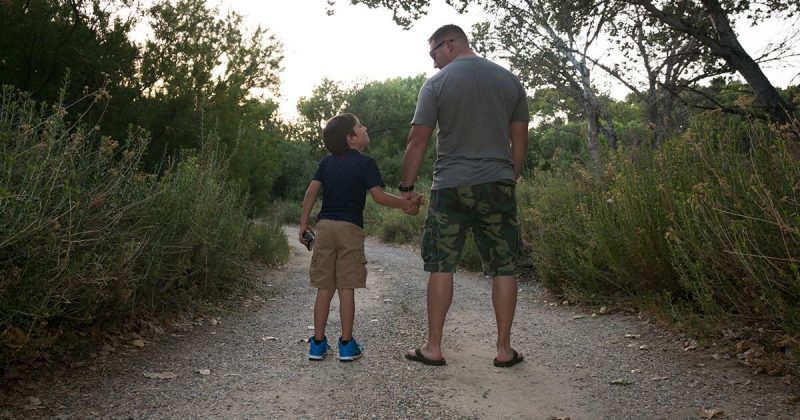I never thought about how everything would change when my husband came home after deployment. I had created a routine for myself and our newborn son, only because I thought it helped the days go by a little faster. I didn’t realize how much that would change. My husband wasn’t there for the birth, so I knew that he longed for that bond. I knew that he wanted to be connected and that he loved his son very much. I did everything I could think of to make sure he felt like he was a part of our routine.
Here are some tips to establish (or reestablish) a bond and to help you and your spouse adjust to the parenting lifestyle after homecoming:
1. Communicate your needs
While deployed, my husband told me he didn’t feel very connected to our son. This was upsetting to me so it led to an argument, but how could I possibly expect him to feel connected to our son? He had literally only “met” him once at his graduation from boot camp. He needed to be involved as much as possible; he needed to get in there and “get his hands dirty.”
This goes both ways. I was so used to not having anyone around to help. When I needed a break, I had to wait until nap time – I couldn’t have daddy take over and go for a drive. When my husband came back, I needed to get used to letting him know what I needed.
2. Discuss parenting styles
It’s almost liberating to be able to parent exactly how you want to parent while your spouse is gone. One of the biggest fights in our marriage was over parenting styles. We had many discussions about our differing styles; some were calm and polite and others were not. Nonetheless, those conversations were so important to get us on the same page.
3. Get them involved
Sharing the responsibility of feeding our son was one of the most important ways I helped to establish a bond between my son and his dad, especially since my husband had missed the newborn stage. I also adjusted my bath time routine to give my husband more of a role.
Consider establishing a “daddy (or mommy) day” and let them have a fun day at the park, museum, or movie theater; eat dinner together and read bedtime stories as a family.
4. Be a team
This is important for any parenting couple. You aren’t always going to agree with your spouse when it comes to their parenting decisions, but there is a time and place for those discussions.
5. Keep them in the loop
Some things might have slipped through the cracks when your loved one was away, or maybe it was something you didn’t want to discuss via phone or Skype. When you see your spouse every day, there’s no reason to leave things unresolved or hidden. It will just create problems later on if you aren’t honest about what’s going on with the kids now. It will also help your spouse feel more involved if you discuss everyday things with them.
Readjusting takes time – it doesn’t happen overnight. It takes patience on both ends and is important to do everything you can to ease the transition, while also taking care of yourself and your children. Be open and honest with each other, let your spouse know what you need and remain a united front. Your relationship will get back to normal eventually, and you will most likely be a stronger parenting team for having gone through the experience.




